Colon cancer is a very serious and life-threatening condition, which affects the lower part of the digestive system; the large intestines, more precisely. When the cancer affects the last several inches of the colon, it is called rectal cancer. When both cancers are present in the body, it is referred to as colorectal cancer.
Causes of Colon Cancer
Even though the main cause is unknown in the majority of cases, just like any other type of cancer, colon cancer also forms when the cells start to grow abnormally and become cancerous over time. Generally, colon cancer begins as small benign clumps of cells on the inside lining of the colon. These clumps of precancerous cells are called polyps, and they have the shape of mushrooms.
Precancerous growths may also be recessed in the walls of the colon and then they are called non-polypoid lesions, but it is very difficult to detect them.
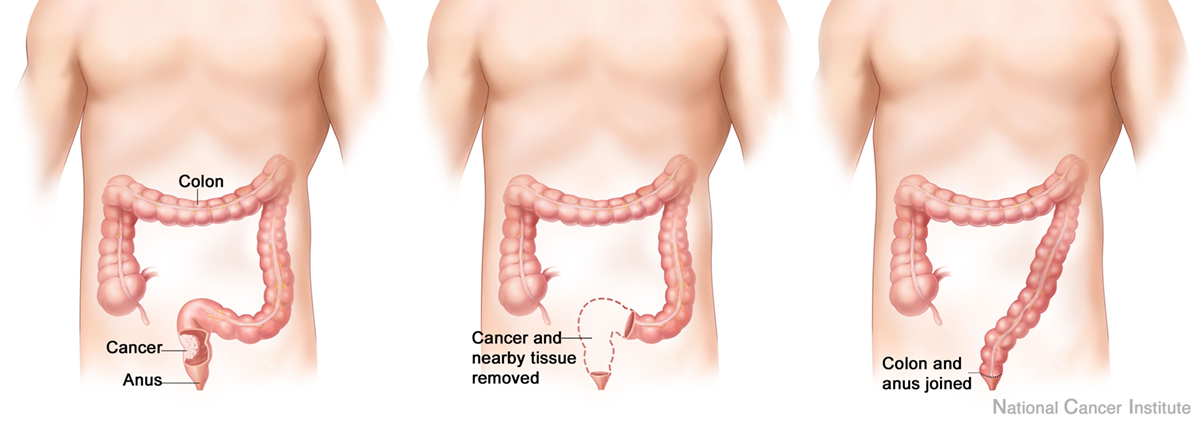
Colon cancer may be even inheritable due to inherited gene mutations. Therefore, the risk of the development of colon cancer is increased in families with a history of this disease.
Early Symptoms of Colon Cancer
When one suffers from colon cancer, the first sign of it is rectal bleeding or bloody stool. When one notices bloody stool, he/she should not immediately assume that he/she has colon cancer since rectal bleeding may occur due to several other reasons, such as hemorrhoids, tears in the rectum, and bowel movement problems.On the other side, when one notices dried blood in the stool, it is usually a sign of colorectal cancer. Therefore, it is very important to visit a doctor if blood in the stool becomes a persistent condition.
Another early symptom of colorectal cancer is the occurrence of narrow stools since the cancerous growths in the rectum or colon tend to narrow these parts of the digestive tract. Unexplained weight loss, despite the normal diet, accompanied by fatigue and extreme tiredness, are also early warning signs of this digestive system disease. As we know, when digestive food passes through the intestine, the walls of the intestine absorb moisture from it and keep it in the body, but in the case of colon cancer, the affected colon walls cannot perform this function.
Colorectal cancer may also cause certain irregularities in bowel movements, such as constipation and diarrhea, accompanied by severe cramping and bloating.
Nausea, vomiting, gas, and anemia are also considered early symptoms of colon cancer.
- We studied the relationship between abdominal symptoms and cancer in a cohort study with prospective registration of cancer. In two previous articles, we described the frequency of abdominal symptoms in general practice consultations, and what the general practitioner (GP) thought and did in relation to possible cancer. The relationship between a symptom and a cancer diagnosis was also described.
- In an abdominal symptom study in primary care in six European countries, 511 cases of cancer were recorded prospectively among 61,802 patients 16 years and older in Norway, Denmark, Sweden, Netherlands, Belgium and Scotland. Colorectal cancer is one of the main types of cancer associated with abdominal symptoms; hence, an in-depth subgroup analysis of the 94 colorectal cancers was carried out in order to study variation in symptom presentation among cancers in different anatomical locations.
- Initial data capture was by completion of standardised forms containing closed questions about symptoms recorded during the consultation. Follow-up data were provided by the GP after diagnosis, based on medical record data made after the consultation. GPs also provided free text comments about the diagnostic procedure for individual patients. Fisher’s exact test was used to analyse differences between groups.
- Almost all symptoms recorded could indicate colorectal cancer. ‘Rectal bleeding’ had a specificity of 99.4% and a PPV of 4.0%. Faecal occult blood in stool (FOBT) or anaemia may indicate gastrointestinal bleeding: when these symptoms and signs were combined, sensitivity reached 57.5%, with 69.2% for cancer in the distal colon.
- For proximal colon cancers, none of 18 patients had ‘Rectal bleeding’ at the initial consultation, but three of the 18 did so at a later consultation. ‘Abdominal pain, lower part’, ‘Constipation’ and ‘Distended abdomen, bloating’ were less specific and also less sensitive than ‘Rectal bleeding’, and with PPV between 0.7% and 1.9%.



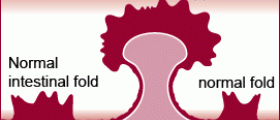
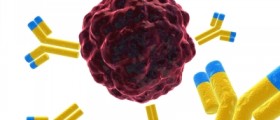
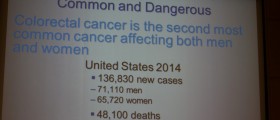

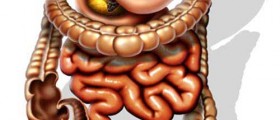

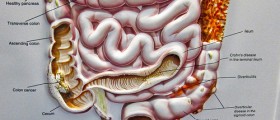







Your thoughts on this
Loading...